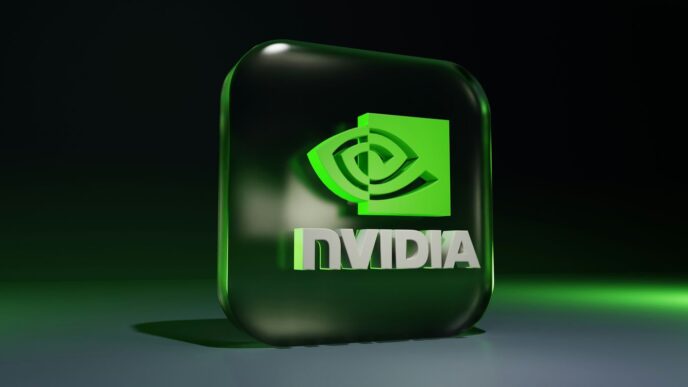Quantum physics can seem pretty tough at first, but there are a lot of books out there that make it way less scary. If you’re just starting out and want to learn about quantum physics without getting lost in complicated math, you’re in the right place. I put together this list of the top 10 quantum physics books for beginners for 2025. These picks are friendly for newcomers and explain the basics in a way that actually makes sense. Whether you’re curious about the science or just want to know what all the fuss is about, these books should help you get started.
Key Takeaways
- You don’t need to be a math genius to start learning quantum physics; many books break it down simply.
- There are books that focus on the history, the weirdness, and even the real-world uses of quantum physics.
- Some authors, like Feynman and Greene, are famous for making tough topics easier to understand.
- A few books explore wild ideas, like how quantum physics might connect to consciousness or parallel universes.
- Picking the right book can make a huge difference in whether you enjoy learning about quantum physics or just get frustrated.
Quantum Physics for Beginners by Carl J. Pratt
If you’re just starting out with quantum physics, "Quantum Physics for Beginners" by Carl J. Pratt is a helpful pick. The book walks you through the strangest ideas in quantum theory with language you can actually understand. What makes this one stand out is its heavy use of simple explanations and lots of visual guides, so you don’t get stuck on confusing math or jargon. You’re not expected to know anything before you start, which takes a lot of the pressure off.
Some things you’ll find inside:
- Clear definitions and comparisons between quantum and classical physics
- The weirdness of light, from wave theory to the famous wave-particle duality
- Important thought experiments and real-life illustrations—like Schrödinger’s cat and the photoelectric effect
- Everyday tech explained with real quantum physics: quantum computers, super accurate clocks, and data encryption
Pratt leans into an intuitive and, honestly, pretty fun approach, making ideas click with lots of diagrams and visuals. According to a recent summary, Quantum Physics for Beginners: A Visual Approach brings even the most out-there concepts like entanglement and the many worlds theory within reach. There are some neat extras too, like fascinating physics articles and even a downloadable audiobook. If you like tutorials that make you feel less lost, this book is a good first stop for understanding modern physics in plain English.
Here’s a quick look at the types of quantum phenomena explained in the book:
| Quantum Concept | Everyday Example |
|---|---|
| Superposition | Computing in qubits |
| Entanglement | Secure quantum messaging |
| Uncertainty Principle | Precise timekeeping (clocks) |
Bottom line: reading this gives you a simple, visual first introduction that doesn’t talk down to you and just makes quantum physics feel a lot less impossible.
Six Easy Pieces: Essentials of Physics Explained by Its Most Brilliant Teacher by Richard P. Feynman

If you’ve ever felt like physics textbooks were written in another language, then Richard Feynman’s "Six Easy Pieces" might feel like a breath of fresh air. This book takes Feynman’s most clear and approachable lectures and wraps them up in a way that, honestly, doesn’t leave you scratching your head after every page. Feynman breaks down complex physics ideas, especially quantum mechanics, into real-world examples anyone can wrap their head around.
Three big reasons this book stands out:
- The lectures aren’t weighed down by formal math—just the concepts, explained in plain language.
- Each chapter builds up your understanding step by step, so you never feel lost or behind.
- Feynman’s storytelling style, full of anecdotes and simple analogies, keeps things interesting instead of dry.
He covers topics like atoms, energy, quantum behavior, and gravity, giving you a solid foundation. For anyone brand new to quantum physics, this book is often the first recommendation. The main goal isn’t to make you a genius overnight—it’s to show that even something as complicated as quantum mechanics can be explored with curiosity and patience. If you want to see why it’s such an accessible starting point for beginners, you can read more about Feynman’s unique approach in clear and engaging explanations.
The Quantum Universe: Everything That Can Happen Does Happen by Brian Cox and Jeff Forshaw
If you’re just starting out with quantum physics and want something that actually makes sense, this book by Brian Cox and Jeff Forshaw is one to check out. It takes those tricky ideas—like superposition and the uncertainty principle—and actually puts them into everyday language, not just equations. The writing is relaxed, sometimes even funny, but they don’t dodge the weird, confusing stuff that drives most people nuts about quantum mechanics.
What really sets this book apart is how visual the explanations feel—you’ll end up picturing atoms, waves, and probability clouds just by reading along. They throw in real-world examples (think phones, solar panels, even toasters) so it’s easy to see this isn’t just theoretical fluff. And the title? It’s not just for effect: one big theme here is that quantum physics doesn’t tell you what will happen, just what can. That’s a strange shift from what you probably learned in high school science.
You’ll find:
- Straightforward talk about why particles act like waves—and why that’s a big deal.
- An honest look at the limits of what scientists actually know (and how they know it).
- A handful of basic math parts, but they tell you when it matters, and skip most of the tough stuff.
By the end, you might not be ready to invent a quantum computer—but you’ll get why these theories have changed the world, and maybe you’ll stop thinking of quantum stuff as just science fiction.
Quantum: A Guide for the Perplexed by Jim Al-Khalili

Jim Al-Khalili’s "Quantum: A Guide for the Perplexed" is one of those rare books that tries to make sense of quantum physics without burying you in math. If I had to sum up the experience, it’s like listening to a really good friend explain the mysteries of the universe over coffee—natural, even when the subject is weird. Al-Khalili tackles the main ideas behind quantum mechanics, unraveling them so that folks who have never taken a physics class can still follow along.
Here are a few things you’ll find inside:
- Clear explanations of the weirdest quantum concepts—think wave-particle duality and entanglement—but without the heavy formulas.
- Real-life examples and stories about the people behind quantum discoveries, like Schrödinger and Heisenberg.
- Straight talk about what quantum theory says (and doesn’t say) about parallel universes and the role of observation.
Al-Khalili also addresses a bunch of common myths you might have heard:
- That quantum physics is just for geniuses and wild-haired professors.
- That it proves the supernatural or can explain everything about consciousness.
- That our everyday reality would be totally different if quantum effects scaled up.
The book’s strength is its honesty—it tells you what scientists do know, what they’re still arguing about, and where things get fuzzy. If you want to understand why everyone says quantum mechanics is so strange, but without feeling completely lost, this book hits the mark.
The Quantum Revelation by Paul Levy
Paul Levy’s "The Quantum Revelation" is seriously not your everyday introduction to quantum physics. If you’re expecting a book that’s packed with equations or focuses only on the physics, you might want to look elsewhere. Levy takes a different approach, connecting quantum ideas to how we see the world and even questioning where science and consciousness meet. It’s kind of a wild ride because Levy wants us to think about how quantum physics might actually change not just our understanding of the universe, but how we experience reality day to day.
One of the biggest takeaways from this book is the idea that the observer—meaning, us—actually matters in the quantum world. That gets weird fast, but that’s Levy’s point: the act of observing might influence the thing being observed. That’s not just a technical detail; it’s a challenge to how we think about what is ‘real.’
Some things you’ll run into while reading:
- Levy explores how quantum concepts and ancient spiritual ideas sometimes overlap.
- The book spends a lot of time on thought experiments that, honestly, can mess with your head in a good way.
- He wants readers to question their own assumptions about how the world works.
There’s not a lot of math. The whole book is mostly about ideas, and sometimes the writing goes off in some unexpected directions—which can be either fun or confusing, depending on your taste. But if you want something that’s less about formulas and more about how quantum physics can shake up your whole perspective, this might be worth a look.
The Quantum Story: A History in 40 Moments by Jim Baggott
This book is something I honestly wish I’d had when I was first struggling with the strange ideas of quantum physics. Instead of dumping a bunch of formulas in your lap, Jim Baggott spreads the story of quantum mechanics over forty big moments, mixing details from history with the real human drama behind each discovery. So you’re not just reading about atoms and particles, you’re following in the footsteps of the actual physicists—think Planck with his quantum idea, Schrödinger hatching his cat experiment, and Heisenberg puzzling over uncertainty—all of whom play starring roles.
Here’s what stands out about the way Baggott tells it:
- Each chapter zeroes in on a turning point, making it easy to follow the timeline even if you’re a total newcomer.
- He doesn’t sugarcoat the confusion or weirdness—he honestly shows how so many scientists were frustrated or just plain baffled by what their experiments revealed.
- The book gives you a sense of how quantum theory was never the result of just one person’s work—it was messy, collaborative, and sometimes competitive.
This read is great for people who like a mix of science and history. The narrative style makes it feel more like a suspense story than a textbook, and you actually get why quantum physics caused such a fuss. If you want to see how the science unfolded, fight after fight, “The Quantum Story” is seriously worth your time.
The Elegant Universe by Brian Greene
Brian Greene’s "The Elegant Universe" stands out as one of those rare books that makes mind-boggling scientific ideas feel like they’re, well, almost normal kitchen table talk. At its core, the book tries to tie together the sometimes-clashing worlds of quantum physics and general relativity, two giant theories that, surprisingly, don’t fit together very well. Greene introduces string theory—yes, those tiny vibrating strings—as a possible answer to this issue.
This book is probably best known for distilling complicated physics into stories and analogies you won’t need a physics degree to appreciate. But don’t get the wrong idea: Greene doesn’t talk down; he brings you along for the ride, whether he’s describing extra dimensions curled up tighter than a roll of tape or how the universe could be built from the smallest "strings" imaginable.
A few concepts and highlights you’ll find in this book:
- Explains why physicists believe the universe might have more than three dimensions.
- Illustrates how string theory could unify all forces and particles.
- Makes connections between big, cosmic scales and the wacky world of subatomic particles.
If you’re curious how breakthroughs in quantum and photonic technology might change computing, the book’s ideas are starting to echo in places like infinite speeds on a microchip. Greene’s writing isn’t about showing off; it’s about making sure you get to stand right at the edge of what science knows and wonders about. Give it a try if you’re ready for a book that’s as much about imagination as it is about equations.
Quantum Enigma: Physics Encounters Consciousness by Bruce Rosenblum and Fred Kuttner
So here’s a book that throws you right into some of the strangest debates in quantum physics—does consciousness really play a part in how reality works? "Quantum Enigma: Physics Encounters Consciousness" doesn’t just tiptoe around the question; it pushes right at it. Rosenblum and Kuttner take the standard quantum puzzles—wave-particle duality, uncertainty, measurement—and ask whether your mind, by observing, has any power over what happens. They don’t try to sell any wild new theory, but they really do invite readers to think seriously about why quantum mechanics keeps leaning back into these philosophical questions.
Some highlights you’ll find in this book:
- Clear breakdowns of the measurement problem and why it bugs physicists
- Real experiments (like Schrödinger’s cat) that actually force us to ask about the observer’s role
- Honest discussion on what’s fact, what’s speculation, and what remains unknown
Importantly, Rosenblum and Kuttner manage to write for everyday readers—no huge math sections, no long tangents. If you want a classic, conventional discussion instead, you might check out a more straightforward book on quantum mechanics focused on standard interpretations.
While some physicists have dismissed the "consciousness question" as mostly unworkable, Rosenblum and Kuttner avoid the usual hype. They show that the debate is alive—if still unsettled—and give you the tools to think about it yourself. This book doesn’t answer all the big questions, but it never promises to; what it does is lay them out so you can puzzle over them, too.
The Age of Entanglement by Louisa Gilder
"The Age of Entanglement" by Louisa Gilder isn’t your usual science book. It digs into quantum physics by telling the story through the voices of the people who made big discoveries. Gilder brings in real letters, transcripts, and writings from scientists like Einstein, Bohr, Schrödinger, Bell, and others. She manages to make the history of quantum entanglement feel very human and sometimes messy, almost like a collection of conversations happening across decades.
Some things you can expect from this book:
- Conversations are reconstructed from real documents, giving you a window into the personal struggles and arguments behind new ideas.
- The narrative stretches from the early days of quantum theory to experiments during the 1970s, showing just how long it took for scientists to really test and challenge entanglement.
- You get to see how communication—letters, conferences, random meetings—helped build up the picture we have today of quantum physics.
The book also connects well with stories of ground-breaking technology developments like data storage and accessible broadband, putting the slow progress of physics research into perspective. I found its approach to story-telling both informative and sometimes surprisingly fun, because it never feels like you’re reading a dry textbook. If you’re looking for a book on quantum mechanics that goes far beyond equations and gets into what actually happened (and who disagreed with who), this one is a strong pick.
Uncertainty by David Lindley
"Uncertainty" by David Lindley is a fascinating look at the battles and debates behind one of quantum physics’ most important principles—the Heisenberg Uncertainty Principle. This book doesn’t just stick to the equations or big science words. Instead, it focuses on the often heated conversations and clashing personalities among the early quantum physicists. Lindley spends a fair amount of time on the "Old Quantum Theory" phase, which happened between the introduction of Bohr’s hydrogen model around 1913 and the more complete quantum mechanics that emerged in the late 1920s.
What really stands out is Lindley’s ability to show just how much folks like Einstein and Bohr disagreed—not just about science, but about what quantum theory actually means. They spent years debating in ways that almost seemed like they were talking past one another. The book gives readers a front-row seat to these stories, making the uncertainty principle much more than just another physics topic.
Here’s what you’ll pick up along the way:
- How the Uncertainty Principle shattered the idea that everything in nature could be measured and predicted.
- Why the arguments between Einstein, Bohr, and others mattered so much for the future of quantum theory.
- The changing view of reality that quantum physics brought, which still shapes science today and even connects with ideas in pan-relational philosophy.
Reading "Uncertainty" feels a bit like eavesdropping on scientists wrestling with a brand new understanding of the universe, making it a great pick for curious minds who want both the story and the science.
Wrapping Up: Your Quantum Physics Journey Starts Here
So, there you have it—ten books that make quantum physics a little less intimidating and a lot more interesting. Whether you’re just curious about how the universe works or you want to understand the science behind some of today’s coolest tech, these books are a solid place to start. Some focus on the big ideas, others tell the stories of the people who made the discoveries, and a few even touch on the weirder side of things, like consciousness and parallel worlds. You don’t need a math degree to get something out of these reads—just a bit of curiosity and maybe a willingness to scratch your head now and then. If you find yourself hooked, there’s a whole world of quantum books out there waiting for you. And if you’ve got a favorite that didn’t make the list, feel free to share it in the comments. Happy reading, and good luck exploring the strange and wonderful world of quantum physics!
Frequently Asked Questions
What is quantum physics in simple terms?
Quantum physics is a branch of science that studies how tiny things like atoms and particles behave. It helps us understand the basic building blocks of everything around us, including light and energy.
Do I need to be good at math to read these books?
No, most of these books are written for beginners and explain ideas without using hard math. They use easy language and examples so anyone can follow along.
How does quantum physics affect our daily lives?
Quantum physics is behind many things we use every day, like computers, smartphones, lasers, and even MRI machines in hospitals. It helps make new technologies possible.
Which book should I start with if I know nothing about quantum physics?
“Quantum Physics for Beginners” by Carl J. Pratt is a great place to start. It explains everything in simple words and covers the main ideas without confusing details.
Why do people say quantum physics is strange or weird?
Quantum physics is called strange because it shows that particles can be in two places at once or change just by being watched. These ideas are very different from what we see in our normal lives.
Are any of these books good for kids or younger teens?
Yes! Many books on this list, like “Six Easy Pieces” by Richard Feynman, use stories and simple language, making them good for curious kids, teens, and anyone new to the subject.














